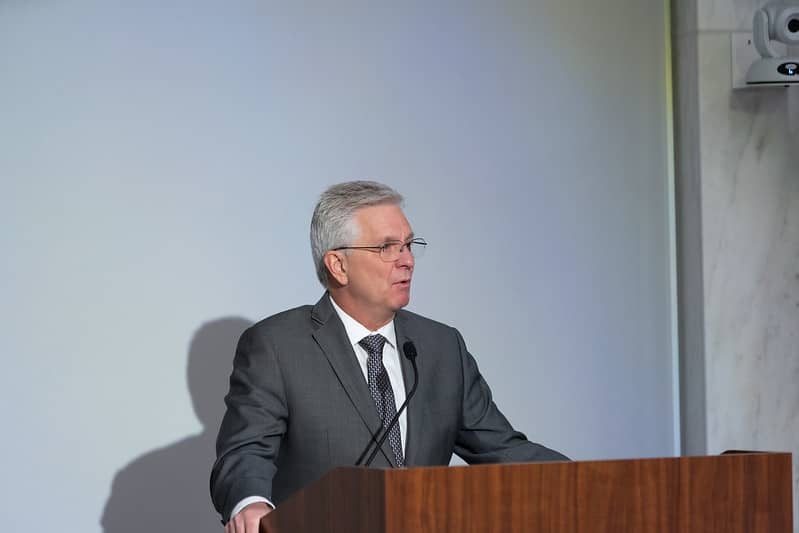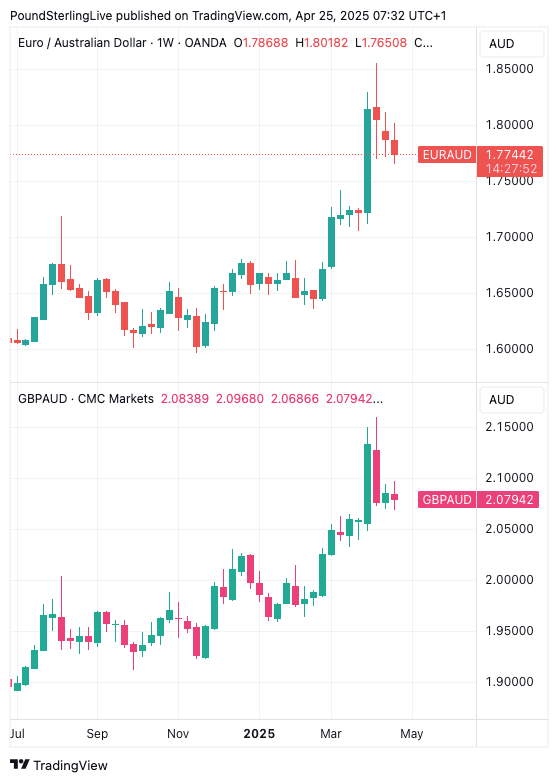
Above: File image of Governor Waller. Image: Federal Reserve.
The Australian Dollar rises against European peers on improving investor optimism.
The Australian Dollar tracked global equities higher ahead of the weekend, putting it in line to register a third weekly advance against the Euro and a weekly gain against the Pound.
Gains for equities and the 'high beta' Aussie Dollar follow growing hopes for interest rate cuts at the Federal Reserve, which would cushion the U.S. and global economies from the worst excesses of a trade slump.
"Yesterday offered continued optimism and U.S. stock markets rose for the third day in a row. The S&P 500 closed at +2.0% while the Nasdaq was up as much as 2.7%. A driving force for the increased optimism is that the market seems to be increasingly convinced that the Fed will deliver timely rate cuts to try to prevent the economy from falling into recession," says Johan Javeus, Senior Economist at SEB.
Javeus says the Fed's Christopher Waller was a driving force of the optimism, having told Bloomberg that he would support interest rate cuts if the tariffs were to prove to hurt the labour market.
Waller said that if he saw "a significant drop in the labour market, then the employment side of the mandate, I think, is important that we step in."
His Fed colleague Beth Hammack said that a cut could come as early as June, given that the picture of economic development has cleared up by then.
"Those comments from Fed officials really helped to support the market," says Jim Reid, a strategist at Deutsche Bank.
The Australian Dollar has a 'high beta' to U.S. equity market, which simply means it has a high positive correlation with performance there. This is because the U.S. market is the best weather vane for global investor sentiment we have, and it is this sentiment that impacts on the Aussie Dollar.
GBP/AUD is down a third of a per cent this week at 2.0784, but was as high as 2.1647 in the first week of April when tariff fears peaked. EUR/AUD is down 0.75% this week at 1.7734.
Also helping broader sentiment was a strong set of Q1 results from Alphabet. "It was particularly gratifying that advertising revenues from the search service Google developed well despite concerns about increasing competition from various AI services such as ChatGPT," says Javeus.
The stock was up 5% in after-hours trading.
Particularly helpful for AUD was news from China, where Chinese authorities are considering exempting medical equipment, certain chemicals and aircraft leasing from the 125% response tariffs the country imposed on US imports.
Above: EUR/AUD (top) and GBP/AUD at weekly intervals.
The decision comes in the wake of overtures made by President Donald Trump to China that suggested he is ready to negotiate lower the punishing import tariffs he has placed on Chinese imports.
For now China has said it is not ready to negotiate, but "perhaps this can start a process that will lead to real negotiations on more extensive tariff reductions," says Javeus.
Elsewhere, U.S. Treasury Secretary Bessent also said that the U.S. and South Korea could possibly reach a "agreement of understanding" on trade as early as next week. Let's hope.
All signs are pointing to the worst of the tariff fears being behind us, which can assist stocks and the Australian Dollar.

